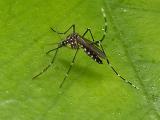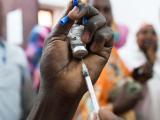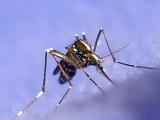The World Health Organization (WHO) said today that yellow fever continues to march toward Brazil's Atlantic coast, where much of the urban population is unvaccinated against the mosquito-borne disease. Since the country's outbreak began in January in the interior state of Minas Gerais, experts have warned that urban transmission of yellow fever posed a huge threat to Brazil.
According to the WHO, as of Apr 3, there have been several suspected epizootic cases of yellow fever currently under investigation in Bahia state along the northern coastal area, including the urban area of Salvador.
An epizootic was confirmed to be caused by yellow fever virus infection in the municipality of Feira de Santana, and in the proximity of the urban area of Campinas in Sao Paulo State. In Rio de Janeiro state, epizootics are under investigation near both the city of Rio de Janeiro and near Niteroi, part of the same metropolitan area.
So far, yellow fever is currently being transmitted by two types of mosquitoes on Brazil, the Haemagogus or Sabethes. If yellow fever is introduced to a major urban center, the virus could jump to the Aedes aegypti mosquito, making human transmission more likely.
"There is no evidence of human cases of yellow fever virus infection transmitted by Aedes aegypti, the vector that could sustain urban transmission of yellow fever," the WHO said in its update.
Travel vaccination recommendation extends
For the first time since the yellow outbreak began, the WHO said travelers to the urban areas of Rio de Janeiro state and Sao Paulo should get vaccinated against yellow fever at least 10 days prior to their trip. Previously, the urban centers were excluded from this recommendation.
As of Mar 31, the European Centre for Disease Prevention and Control (ECDC) said Brazil had reported 1,589 cases (1,093 suspected and 496 confirmed). The vast majority of those cases, 1,203, are in Minas Gerais state.
See also:
Apr 5 WHO statement
Apr 3 CIDRAP news scan




















